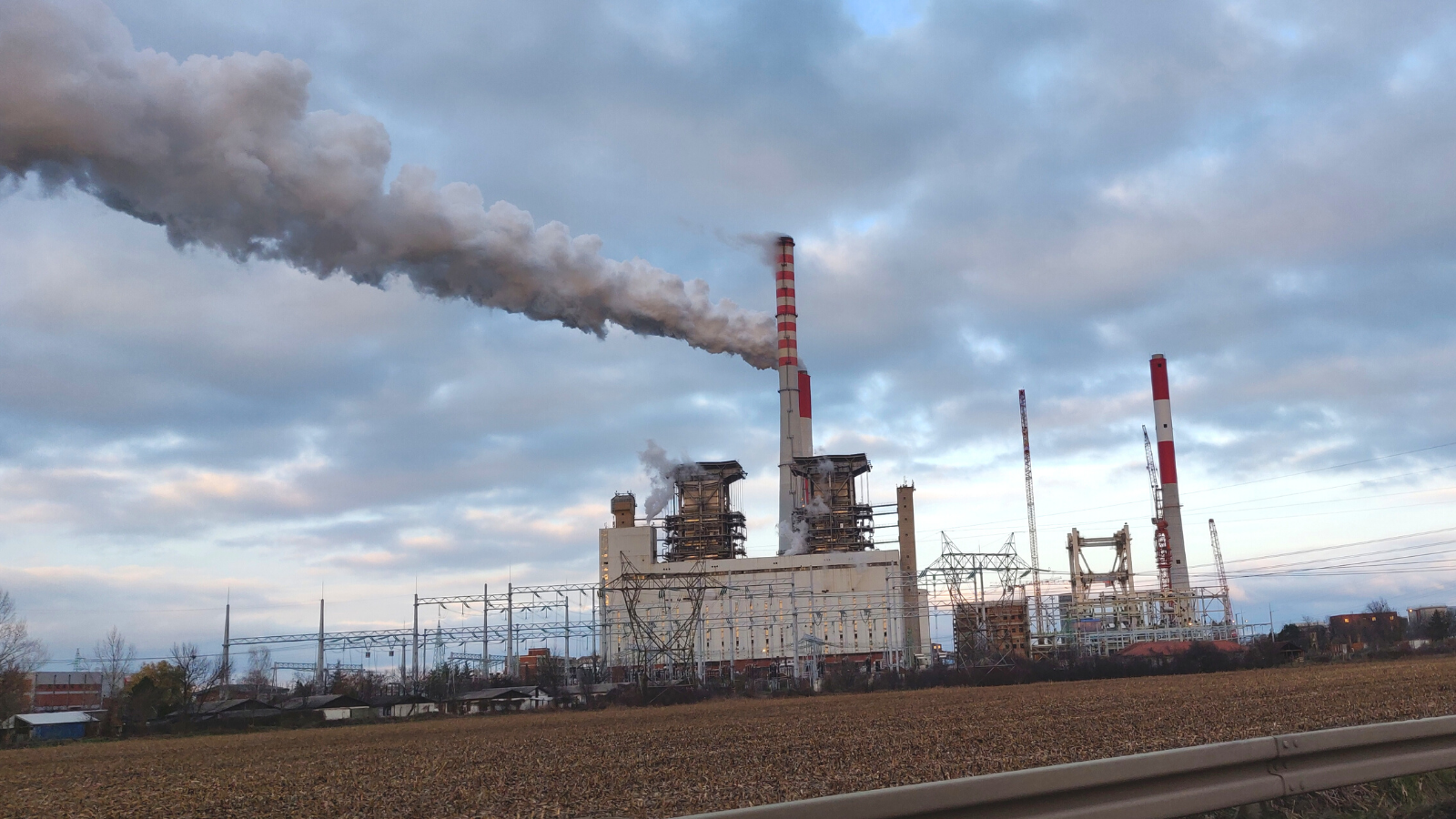Kostolac B power plant (B1, B2), Serbia
The Kostolac B power plant, consisting of 2 units of 350 MW each, first started operating in 1987. In 2024, the plant delivered 4359 GWh of electricity to the grid, around 14 per cent of the country’s coal-based generation.

Photo: Kostolac B power plant, Serbia, Dec 2021.
Stay informed
We closely follow international public finance and bring critical updates from the ground.
Background
Serbia’s energy utility EPS secured financing for a complete overhaul of Kostolac B1 and B2 in December 2011. A USD 293 million loan was taken by the Government of Serbia on behalf of EPS from China Exim Bank to equip the two units with flue gas desulphurisation (de-SOx) technology and bring the plant’s SO2 emissions in line with the Large Combustion Plant Directive. This should have been done by the time the Directive entered into force in January 2018. The company contracted for the works was the China Machinery and Engineering Corporation (CMEC), the same company which has built a new unit at Kostolac B.
The works were finalised in July 2017, according to the Government. However, EPS’ 2018 Environmental Report shows that the application for a construction permit for the de-SOx installation was submitted only in November 2018 – more than a year after the opening ceremony for the facility. The permit was actually rejected twice – once in December 2018 and once in January 2019 – although the grounds on which rejections were issued by the Serbian authority are unknown.
The only explanation we received at the time from EPS and the Serbian Ministry of Energy and Mining was that the gypsum landfill was not ready for the de-SOx to start operation.
In December 2019, EPS launched a public consultation for an ‘updated’ Environmental Impact Assessment (EIA) report for the desulphurisation unit at Kostolac B, and public consultations were held in January 2020. The decision approving this new EIA for the already built de-SOx facility was made in August 2020.
In April 2021, the Ministry of Mining and Energy announced that in fact the facility has been operating in testing mode since October 2020 but annual emissions in 2020 were much higher than those in the previous year. Kostolac B released 95,097 tonnes of SO2 in 2020, which was enough to breach the national – not plant level – 2020 ceiling for this pollutant by 1.74 times.
In 2021, the plant finally started to decrease its sulphur dioxide emissions. It emitted 26,015 tonnes of SO2 – a significant reduction compared to 95,097 tonnes in 2020 – but still 1.6 times as much as allowed. However, in 2022 and 2023, its SO2 emissions increased, emitting nearly 5.8 times as much as allowed in 2023.
Since the period between the start of testing and requesting the operating permit for the desulphurisation equipment could not legally be longer than a year, EPS requested an operating permit in October 2021. The Ministry neither approved nor rejected this, so EPS made several more requests before finally obtaining the operating permit in January 2023.
In 2024, Kostolac B finally started to decrease its emissions, but it still emitted 2.3 times as much as allowed, or 15,218 tonnes.
Latest news
Fear and fossil fuels in Romania
Blog entry | 11 February, 2026A draft law supported by thirty members of the Parliament, aims to roll back Romania’s coal phase out and, at the same time, delivers a masterclass in manipulation.
Read moreJoint NGO statement: New EU budget must ensure dedicated funds for environmental protection and just transition in the Western Balkans
Press release | 28 May, 202568 civil society organisations have today issued a joint statement calling on the EU to ensure dedicated funds for environmental protection and just transition of coal-dependent regions in the Western Balkans in the post-2027 EU budget.
Read moreConcerns raised over new coal mining project in light of North Macedonia’s decarbonisation goals
Blog entry | 27 May, 2025CEE Bankwatch Network and Eko-svest have recently raised serious concerns regarding a proposed coal mining project in North Macedonia. The plan to open a new lignite mine in the Pelagonija region comes as a surprise, as the region is already affected by three other operating mines and the project contradicts the country’s coal phase-out commitments.
Read moreRelated publications
New EBRD Environmental and Social policy needs climate muscle and tightened safeguards for protected areas
Bankwatch Mail | 10 May, 2013 |If there is one sector in which the EBRD has been causing particular controversy in recent years, it is the energy sector. From lignite in Slovenia to hydropower in Georgia and nuclear in Ukraine, the bank has financed a series of projects that have incurred opposition from various quarters. Now that the EBRD is revising its Environmental and Social Policy it’s time to take a look at what needs to be learned from these projects.
Croatian coal power plant predicted to be a killer – new study
Bankwatch Mail | 10 May, 2013 |A new report by Greenpeace Croatia, using European Environment Agency methodology, shows that the planned new 500 MW unit at the Plomin coal power plant in Croatia will cause approximately 17 early deaths annually, along with around 3970 lost working days due to illness and EUR 124.8 million in external costs.
NEVER AGAIN – Sostanj lignite power plant financing slammed
Bankwatch Mail | 10 May, 2013 |Following confirmation at the beginning of March that the European Investment Bank and the European Bank for Reconstruction and Development are paying out half a billion euros in loans for a new unit at the Sostanj lignite power plant (TES 6) in Slovenia, 98 organisations sent an open letter to both banks calling on them to never commit to such misguided loans again.
